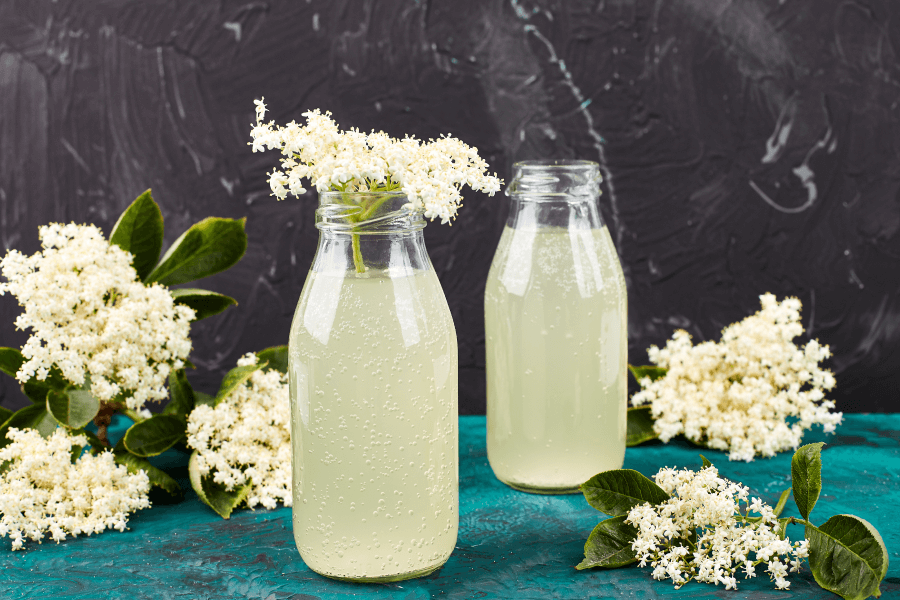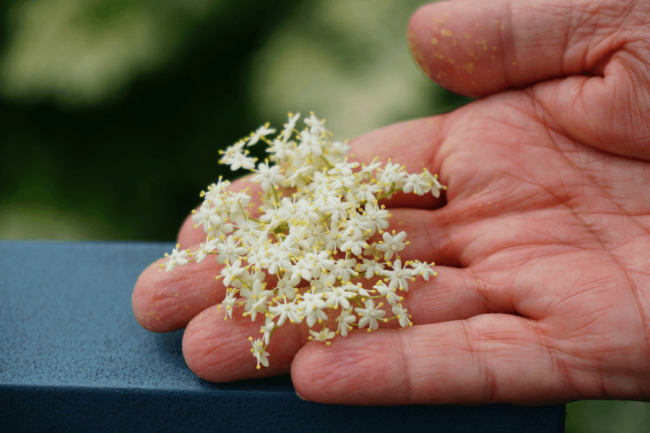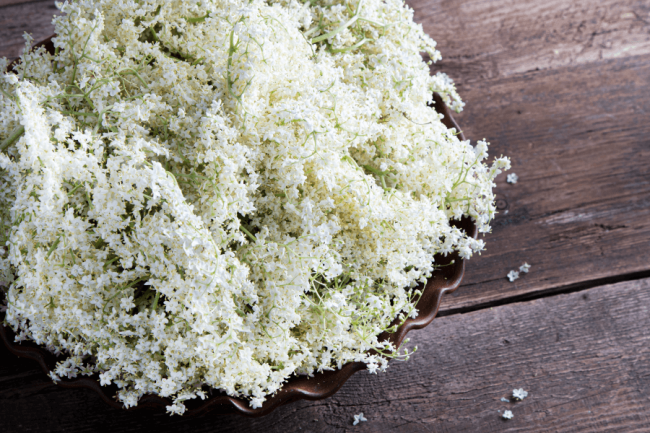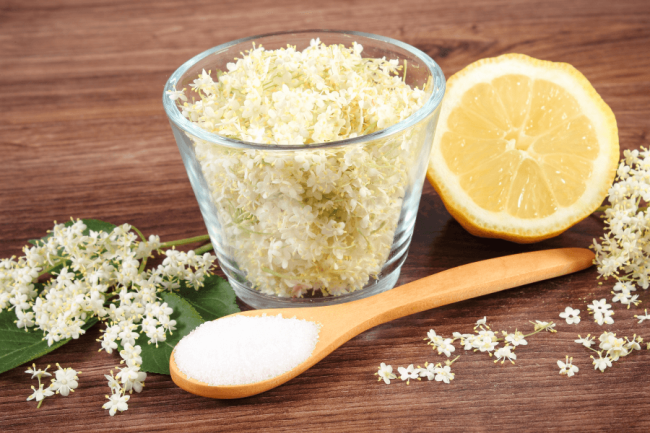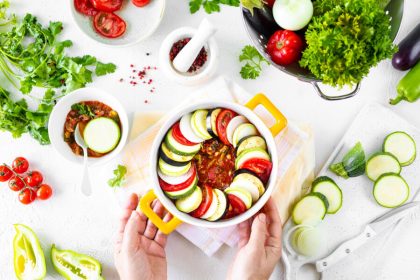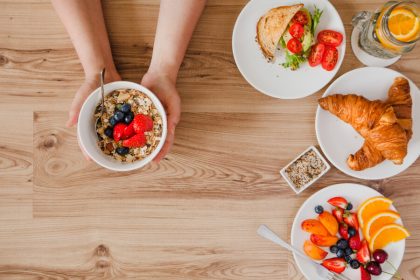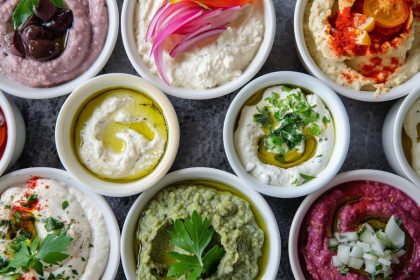Elderflower drinks aren’t just refreshing; they’re packed with potential health benefits for your health too! This blog is your guide to know about the world health benefits of elderflowers. We’ll explore their history, their surprising uses for your health, and most importantly, show you how to create delicious (and healthy!) elderflower drinks to add into your daily life!
Creative Uses in the Kitchen of Elderflowers
Elderflower drinks are not just pretty to look at—they’re also a pretty useful ingredient. These blossoms can transform your kitchen creations, adding a unique floral note that’s both tasty and enchanting. From refreshing drinks to delectable desserts, the possibilities are endless. Let’s explore how you can bring a touch of elderflower magic to your meals.
Elderflowers: Plant and History
Elderflowers come from the elder tree, which is scientifically called Sambucus. This tree has a long history, with roots going back to ancient civilizations. In the past, elderflower drinks have been respected for their healing properties and used in traditional remedies across Europe and North America. The plant usually blooms in late spring to early summer, producing clusters of tiny, creamy-white flowers that are harvested for different uses.
Uses of Elderflowers
Elderflowers have been used for centuries for their health benefits. They’re known for their anti-inflammatory, antiviral, and antioxidant properties. Elderflower extracts and infusions have traditionally been used to treat colds, flu, sinus infections, and allergies. They’re also believed to support skin health and promote detoxification. Modern research is continuing to explore and validate these traditional uses, making elderflowers a valuable addition to natural health practices.
How to Use Elderflowers?
Adding elderflowers into your diet is easier than you might think. Here are some tips:
- Fresh: Add fresh elderflowers to salads for a floral touch.
- Infusions: Make infusions for teas, syrups, and tinctures.
- Desserts: Use elderflower syrup in desserts like cakes, sorbets, and jellies.
- Drinks: Mix elderflower cordial or syrup with sparkling water, lemonade, or cocktails.
Types of Elderflower Drinks
Elderflower Cordial: A concentrated syrup made from elderflowers, sugar, and water, often with added lemon juice or citric acid. The cordial is diluted with water, sparkling water, or used as a mixer in cocktails.
Elderflower Syrup: Similar to cordial, elderflower syrup is a sweet, fragrant syrup that can be used to flavor beverages, desserts, or even savory dishes. It is often mixed with water to create a refreshing drink.
Elderflower Tea: A herbal tea made by steeping fresh or dried elderflowers in hot water. This tea is enjoyed for its delicate flavor and potential health benefits.
Elderflower Liqueur: An alcoholic beverage made by infusing elderflowers in a base spirit, such as vodka or gin, often sweetened with sugar. Elderflower liqueur is used in cocktails to add a floral note.
Elderflower Wine: A fermented beverage made from elderflowers, sugar, water, and yeast. Elderflower wine is light and fragrant, perfect for summer sipping.
How to Make Elderflower Cordial
Here’s a simple recipe to make your own elderflower cordial at home:
Ingredients:
- 20-30 elderflower heads (ensure they are free from insects)
- 1.5 kg granulated sugar
- 1 liter water
- 2 lemons (sliced)
- 50 g citric acid (optional, helps preserve the cordial)
Instructions:
- Shake the elderflower heads to remove any insects and rinse them gently under cold water.
- In a large pot, dissolve the sugar in boiling water, stirring until fully dissolved.
- Once the sugar has dissolved, remove the pot from heat and let it cool slightly.
- Add the elderflower heads and lemon slices to the pot.
- Stir in the citric acid if using.
- Cover the pot and let the mixture steep for 24-48 hours in a cool, dark place.
- Strain the mixture through a fine mesh sieve or cheesecloth into sterilized bottles.
- Seal the bottles and store in the refrigerator. The cordial should keep for several weeks.
How to Enjoy Elderflower Cordial
- Diluted with Water: Mix a small amount of cordial with still or sparkling water for a refreshing drink.
- Cocktails: Use elderflower cordial as a mixer in cocktails like an Elderflower Spritz or a gin and tonic.
- Desserts: Drizzle over cakes, pancakes, or fruit salads for a floral touch.
Health Benefits of Elderflower Drink
Elderflower drinks are not only delicious but also offer several health benefits:
- Anti-inflammatory: Elderflowers have anti-inflammatory properties that can help reduce swelling and pain.
- Antioxidant: Rich in antioxidants, elderflowers can help protect your cells from damage.
- Immune Support: Elderflower tea and syrups are traditionally used to support the immune system and alleviate cold and flu symptoms.
- Digestive Health: Elderflower infusions can aid digestion and relieve constipation.
Where to find Elderflower Drink
- Local Health Food Stores
- Online Retailers
- Supermarkets
- Farmers’ Markets
- Specialty Beverage Stores
- Pharmacies and Herbalists
- Direct from Producers
Conclusion
Elderflowers are a true gift from nature, offering you not only their beauty but also a host of health benefits and culinary delights. From teas and syrups to elderflower drink to tinctures and cordials, the ways to use elderflowers are as varied as they are delicious. Whether you’re looking to enhance your health or add a unique flavor to your kitchen creations, elderflower drinks are a wonderful drink for your health benefits.
FAQs
What are the benefits of elderflower tea?
Elderflower tea can help relieve symptoms of colds and flu, reduce inflammation, and provide antioxidant support. It’s also soothing for respiratory issues and allergies.
How do you make elderflower syrup?
To make elderflower syrup, combine fresh elderflowers with sugar, water, and lemon slices. Boil, steep for a day or two, then strain. The syrup can be used in drinks, desserts, and more.
Can elderflowers be used in savory dishes?
Yes, elderflowers can add a subtle floral note to savory dishes. Try incorporating elderflower syrup into glazes for meats or using fresh flowers in salads.

